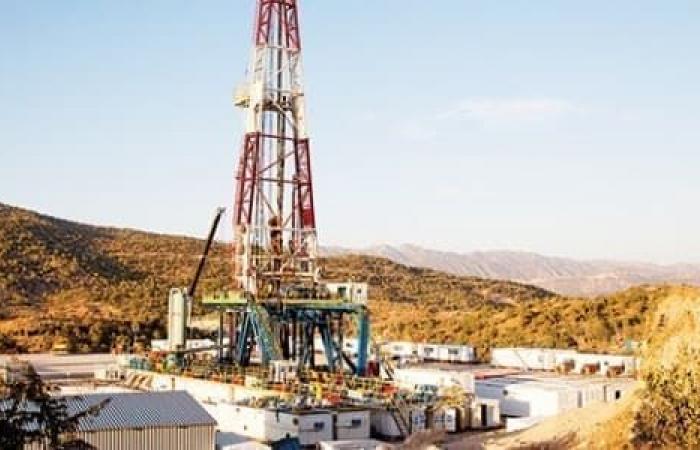It’s likely to be around 100 degrees Fahrenheit this week in the capital of Iraqi Kurdistan, Erbil, but few regional commentators doubt that many in the semi-autonomous region will feel a chill somewhere deep in their bones. Having voted for independence on September 25, 2017, by 92.73 percent to 7.27 percent, the Kurds of northern Iraq are now contemplating being absorbed into the rest of the country and governed in every way directly from Baghdad. This follows last week’s announcement by the Kurdistan Oil Industry Association (APIKUR) – a group representing international oil companies (IOCs) in Iraqi Kurdistan – that its members would agree to direct sales agreements with the State Oil Marketing Organization (SOMO), controlled by the Oil Ministry in Baghdad. This follows a statement by the Kurdistan Regional Government (KRG) that such direct sales are the best option to resolve the suspension of oil flows from the region to Turkey in place since March 25, 2023.
Given the rapid deterioration of the KRG’s finances since the embargo began, it is hardly surprising that it ultimately caved in to Baghdad’s calls for the ICC’s oil sales to be managed by SOMO. However, to those who have followed the struggle between Erbil and Baghdad for decades, the KRG’s statement sounds a lot like the idea of turkeys voting for Christmas. The Federal Government of Iraq (FGI) has been searching for the optimal way to integrate Iraqi Kurdistan into a unified Iraq since the United States announced in July 2020 its intention to end its combat mission in Iraq later this year, as analyzed in detail in my new book on the new global oil market order. In essence, according to a very senior European Union (EU) energy security source, the key to implementing the “Unified Plan for Iraq,” as it is informally known, is to cut off all sources of external revenue for the Iraqi Kurdistan government – primarily independent oil sales by the IOCs operating there – thereby making it entirely dependent on Baghdad for its survival.
Also read: US drivers could see lowest July 4 gas prices since 2021
There are three powerful reasons why the GFI in Baghdad – and its key global sponsors, China and Russia – do not want Iraqi Kurdistan to continue to operate with any degree of independence. One basic geopolitical reason is that for a long time the region was a key ally of both the United States and its predecessor as the dominant global power, the United Kingdom. Indeed, the very idea for the 2017 independence referendum came from what Kurdistan believed to be a tacit agreement with Washington in late 2013/early 2014 as the Islamic State (IS) began to emerge as a significant regional concern. The idea was that Iraqi Kurdistan’s push for independence would be supported by the United States and its Western allies in exchange for their provision of ground troops in the fight against ISIS through the fearsome Peshmerga army, as analyzed in detail in my new book on the new world order of the oil market.
Once victory against ISIS was secured, the independence referendum did indeed take place, but following the violent reaction to the outcome from some key regional actors, significant support from the United States and its allies for further moves towards independence for Iraqi Kurdistan failed to materialize. The strong opposition to the outcome of the 2017 independence vote underscores another reason why the “Unified Plan for Iraq” is now moving forward in full force. For Iran, Iraq’s key regional sponsor, as well as Turkey and Syria, growing Kurdish independence sentiments would also pose a distinct threat to existing regimes, given the size of the populations in those countries. Iran’s Kurdish population makes up about 9 percent of its total population, Syria’s 10 percent, and Turkey’s about 18 percent. For China, an independent, fractured Kurdistan with strong long-standing ties to the United States would make it much more difficult to control Iraq’s oil and gas. Similarly, although Russia effectively took control of Iraqi Kurdistan’s oil sector after the 2017 independence vote, as also detailed in my new book, it would prefer to work with a centralized government in Baghdad, heavily influenced by Moscow’s main ally in the region, Iran. Certainly, the EU source says, Russia will not lose any of its existing arrangements in Iraqi Kurdistan once it is integrated into a unified Iraq. There is also a deeper motivation at play, as a senior Kremlin official pointed out just after the signing of the China-brokered Iran-Saudi Arabia deal on March 10, 2023, relayed to OilPrice.com by the EU source. Specifically: “By keeping the West out of the Iraq energy deals – and closer to the new Iran-Saudi axis – the end of Western hegemony in the Middle East will become the defining chapter in the West’s final decline.”
Financially, too, the IGF sees no benefit in Iraqi Kurdistan continuing to operate with any significant measure of independence. The original agreement reached between the two sides in 2014 called for 17 percent of the federal budget after sovereign spending (about $500 million at the time) to be paid by the KRG in exchange for the Kurdistan Region of Iraq’s oil exporting up to 550,000 barrels per day (bpd) of oil from its own fields and from Kirkuk via the IGF’s SOMO. However, from the start, the deal failed to work properly, with both sides claiming that the other was not keeping its end of the bargain. “Without the deal working, Baghdad was losing billions of dollars a year in revenue from oil sales made independently by the Kurds, so why would it continue to tolerate this?” a source working closely with Iraq’s oil ministry recently told OilPrice.com exclusively. Legally, too, there is no obvious reason why Baghdad should not remove the KRG’s main source of financial independence either, given the lack of clarity in the 2005 Iraqi Constitution on the issue. Article 111 states that oil and gas belong to all Iraqi people in all regions and governorates. Therefore, Baghdad argues that all such oil flows should be considered Iraqi and thus managed by the IGF’s proxy for such matters, namely SOMO. The KRG, however, believes it has the authority under Articles 112 and 115 of the constitution to manage oil and gas in the Kurdistan Region extracted from fields that were not in production in 2005.
That the “Unified Plan for Iraq” remains the main ideological impetus for what happens in Iraqi Kurdistan was underlined on August 3 last year when Iraqi Prime Minister Mohammed Al-Sudani declared that the new unified oil law – administered, in all ways that matter, from Baghdad – would govern all oil and gas production and investment in Iraq and its autonomous Kurdistan Region and would be “a strong factor for the unity of Iraq.” The most powerful practical manifestation of this idea is the planned full deployment of Baghdad’s own oil export pipeline to Turkey, bypassing any input from Iraq’s Kurdish region. Baghdad’s 600-mile pipeline was the original Iraq-Turkey Pipeline, stretching from Kirkuk in northern Iraq to Ceyhan in Turkey, before it was shut down in 2014 after repeated attacks by various militant groups in the region, including the Islamic State. It consisted of two pipelines, with a combined design capacity of 1.6 million barrels per day (bpd) (1.1 million bpd for the 46-inch pipeline and 0.5 million bpd for the 40-inch pipeline). Only after its closure did the Kurdistan Regional Government of Iraq oversee the construction of a new one-way pipeline, from the Taq Taq field through Khurmala, which joins the Kirkuk-Ceyhan pipeline at the border town of Fishkhabur. “By excluding the Kurds from the new pipeline and closing their own pipeline, the new oil law can move forward, unifying the country’s oil sector as originally planned,” the Iraqi oil source concluded.
By Simon Watkins for Oilprice.com
More recommended reading from Oilprice.com:






